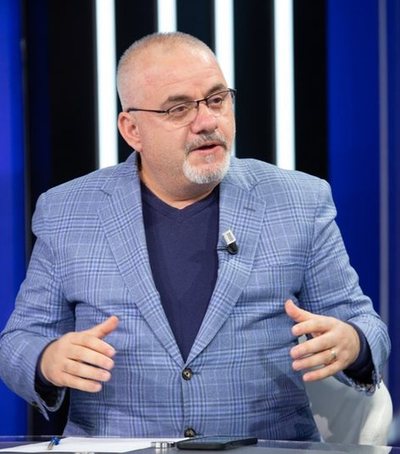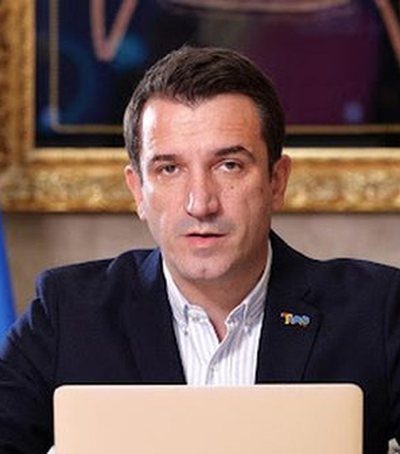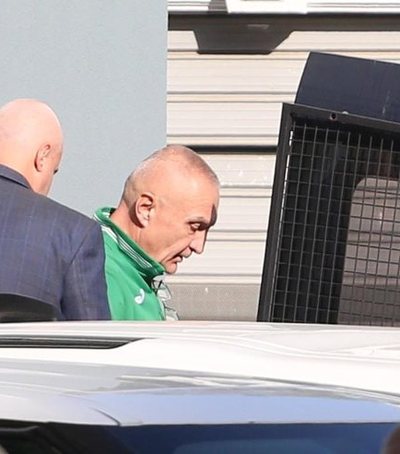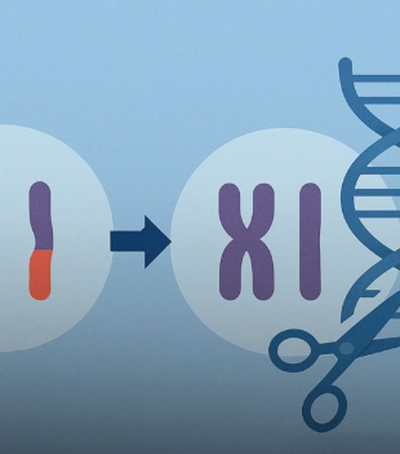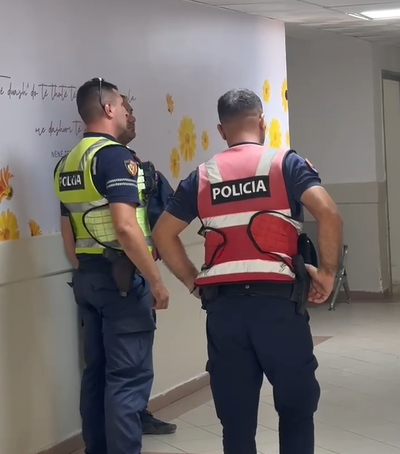A few days ago, the Italian investigative show Le Iene aired a report centered on Albanian father Afrim Berisha, whose 11-year-old son is in a camp in Syria. Missing for five years, when his mother joined the Islamic State fighters and fled to Syria, Le Iene's reporters managed to find Alvin. They did their best, even traveling with Alvin's father to pick him up from camp in Syria, but that was impossible.
The case of Alvin Berisha and his father, Afrim has been one of the most talked about in the Italian media, but also in the Albanian media. The 11-year-old had been missing for five years, when his mother took him to Syria to join Isis. His father, Afrim Berisha, managed to find his son through an investigative show in Italy, "Le Iene", but could not join him. Le Iene has given a great deal of attention to this case and last night on the Opinion show, one of Le Iene's journalists, Osvaldo Verri, provided more details about the case followed by them. He says it was not easy to get into the Al Hol camp and that the only ones who helped were the Kurds.
"I've been to Syria for other reports, but at Camp Al Hol it was my first time going. It was difficult until we arrived. We thought we would have the help of the organizations that are there, we relied on the military, the ambassadors, but no one helped us. In the end, the ones who put their hand to their heart and were touched by their father and decided to help us were the Kurds who allowed us to enter the camp at a much reduced rate compared to the rate of televisions, which expect from 3 days a week, we went in for a day, having a desperate father. "
Verri said they had seen many children in the camp and learned that there were other Albanian families and children there.
"Getting into that camp is difficult and dangerous because there were women and children who are families of ISIS fighters. To stay inside your tent for a while, you have to agree with the Syrian Kurds, tell them what you want to do and they will accompany you. Our focus was on Alvin, so we focused a little on other stories and other cases. We saw many children and we were told that in one part of the camp there were Albanian families of Albanian children, but we could not go. The camp was very large. But we saw children in very bad conditions, filth, and my father hurt my heart. " The Italian journalist said they had tried all the ways to get the 11-year-old out of the camp, but had failed after being told there was a procedure. As Alvin had an Albanian passport, he needed a representative of the Albanian state to take the child. â??We tried all the ways to get Alvin back to his father. There are procedures that have international interests in that field of war, so there is attention from around the world to the fate of the people in that camp. The Kurds, who run the camp, told us that they could not keep the father who wanted to stay there, as there were daily killings by former ISIS fighters. But they could not give the child, as there was a procedure, in order to get a child born in Italy and raised in Italy, but had an Albanian passport requiring a stone from a representative of the Albanian state. Without this stone they would not give their child. We were told that there were similar cases. We were told that Danish mothers with Danish children, who had no connection to ISIS and wanted to return. They returned with a Danish government official and took the baby in 10 minutes. We didn't have this opportunity, we tried with the Albanian ambassador, but we had promises and to this day the baby is there. â? Verri further indicates that they had traveled to Syria before the Turkish intervention. In addition to roadside checks, he says they had no problems. The Italian journalist also says that now that the territory is no longer under Kurdish control, it is a very dangerous place, especially for children. â??We went before the Turkish intervention. We had no problems. We were all kind, we slept in the hotel, went to dinner at the restaurant. Poor of course, but we had no problems with anyone. Of course there were street checks to see who you are and what you do, but we had no problems. The only ones that were a little different were the ISIS women inside the camp. When we were there we exchanged little jokes with the black women there who told us they were afraid there, there was violence, there were people putting on their tents. And now that the Kurds have no more control I think it's much more dangerous. For children I think it's even more dangerous. I'm really crying. "
Source: Tv Klan

